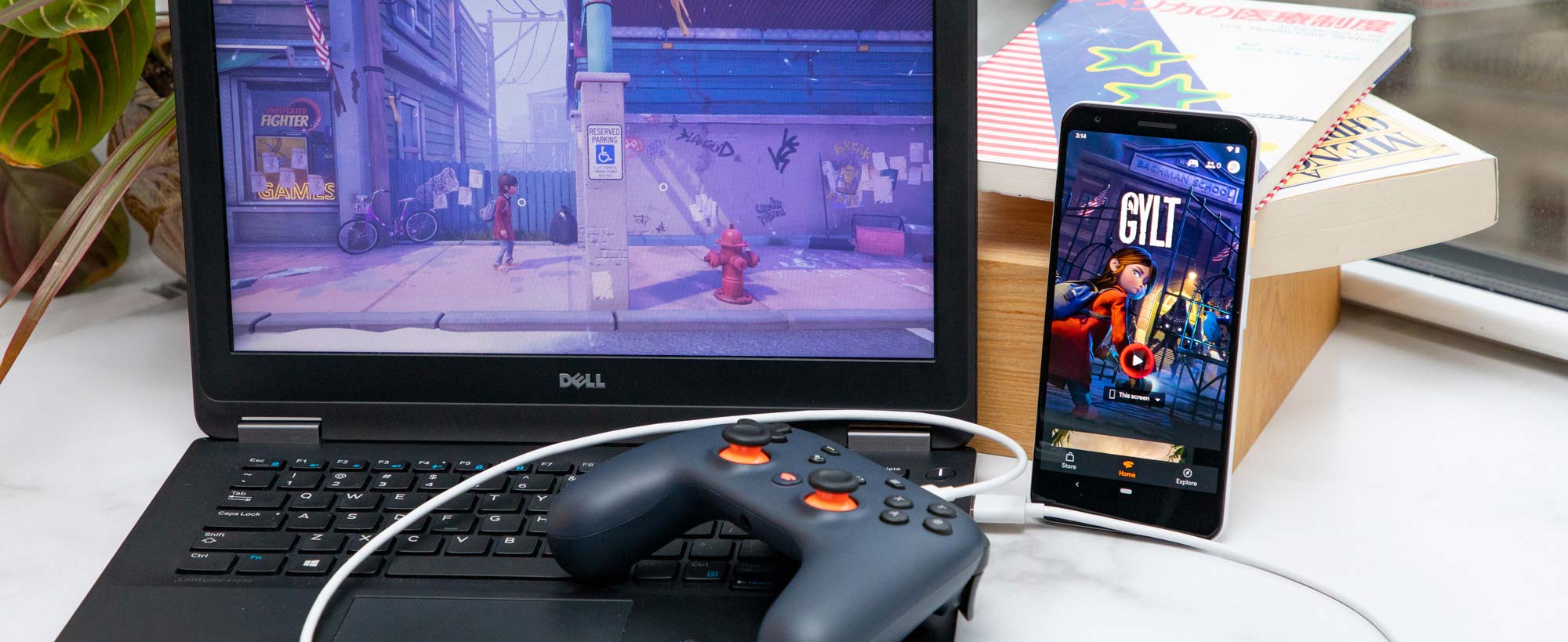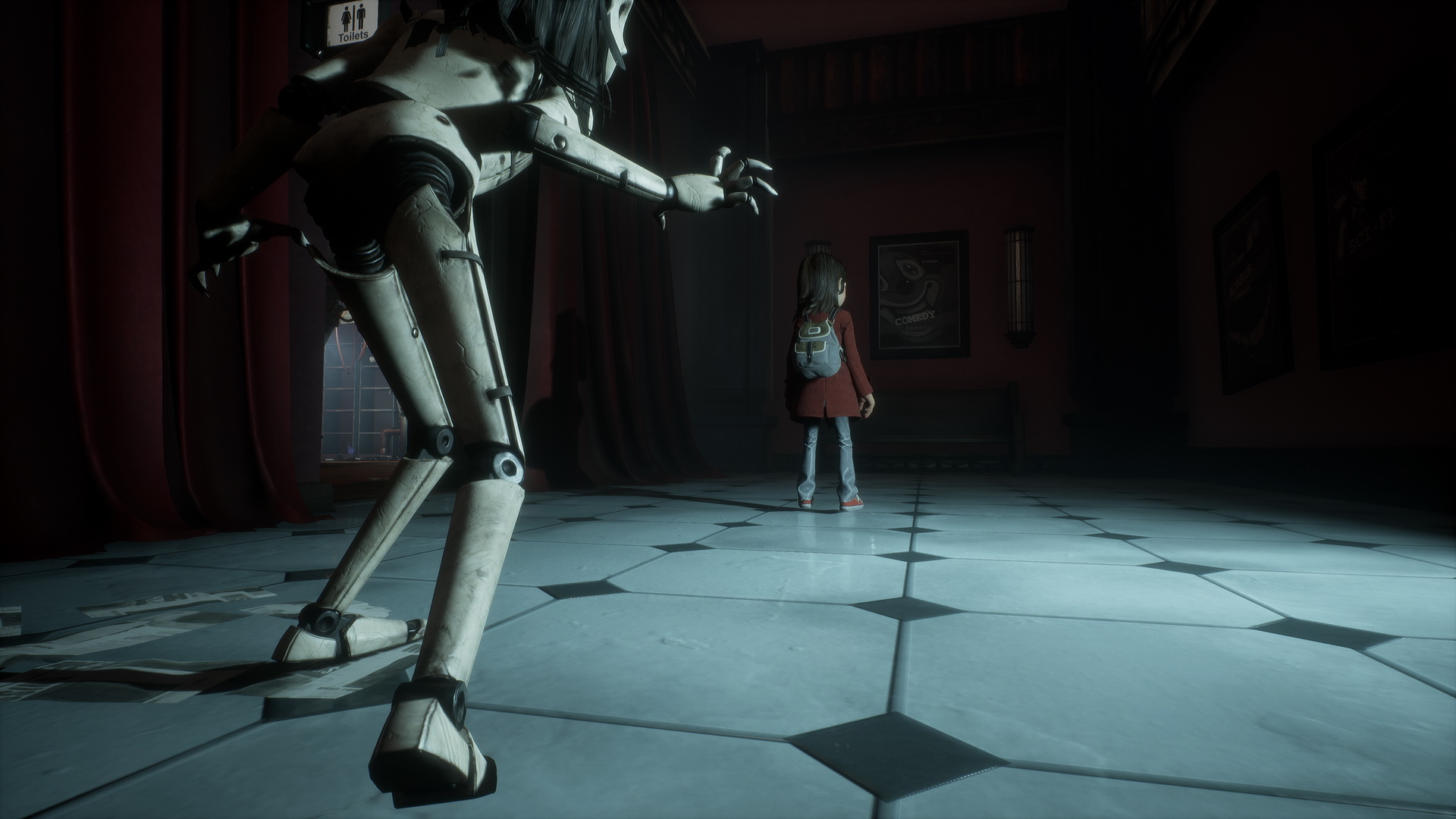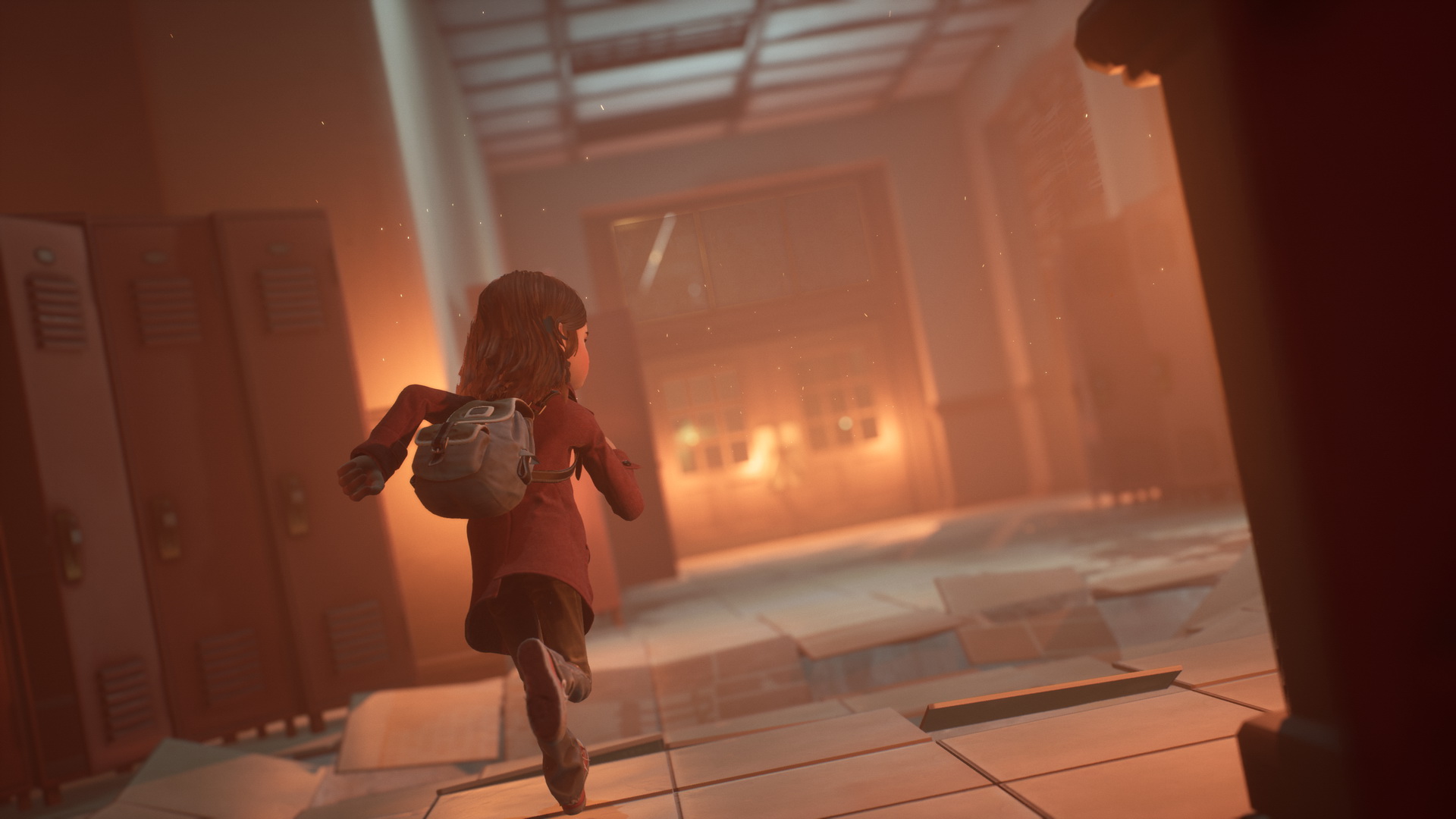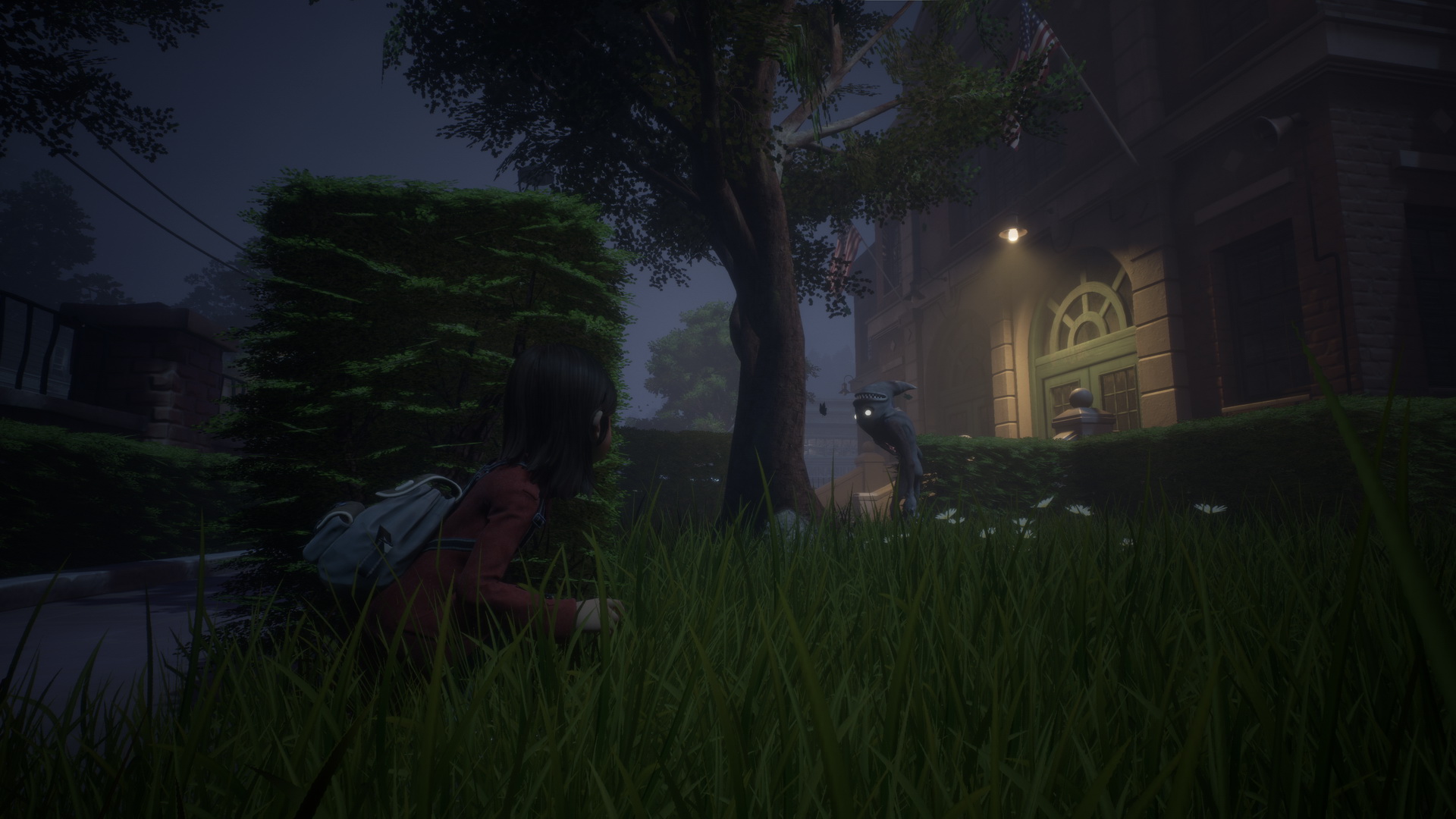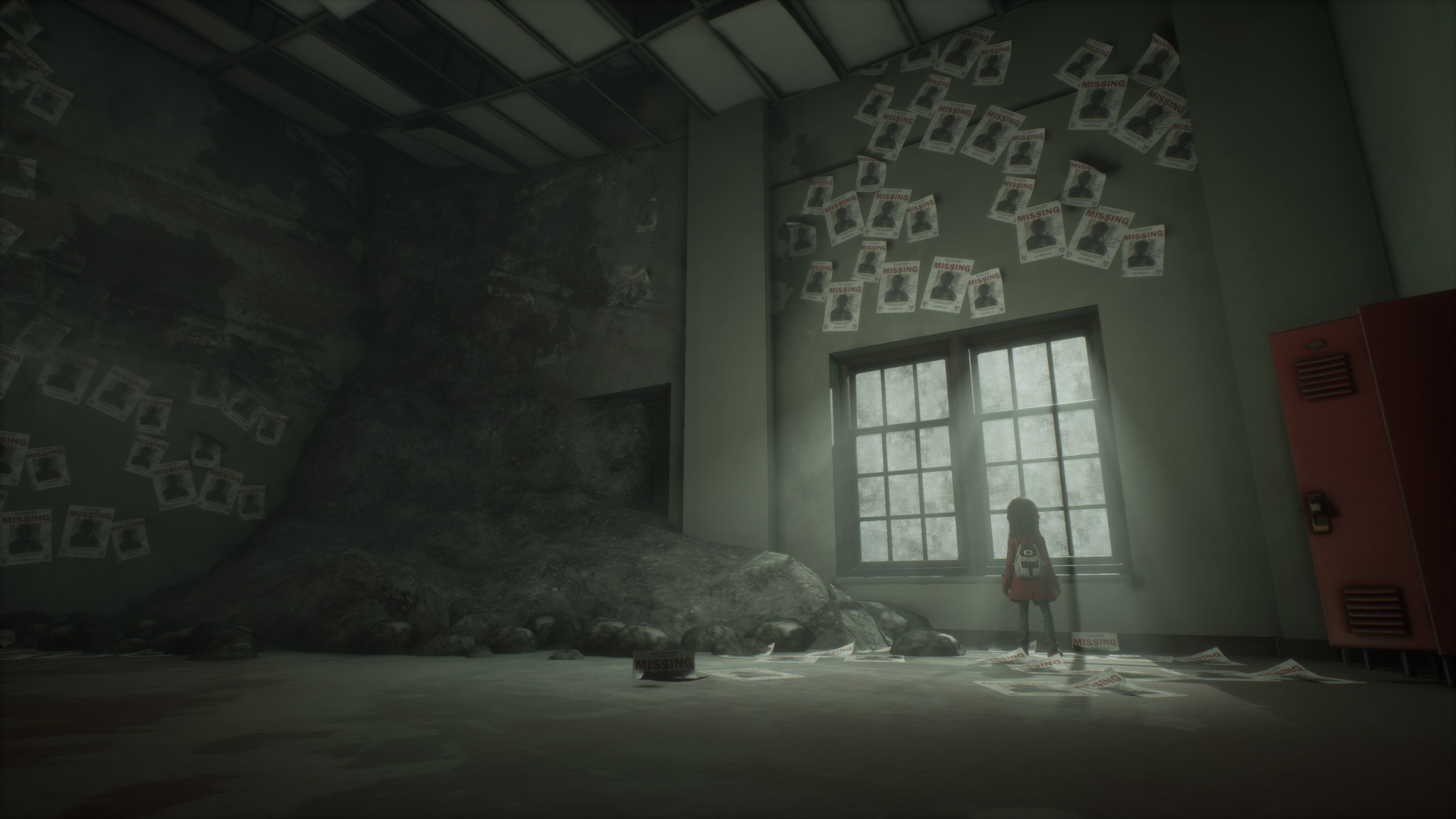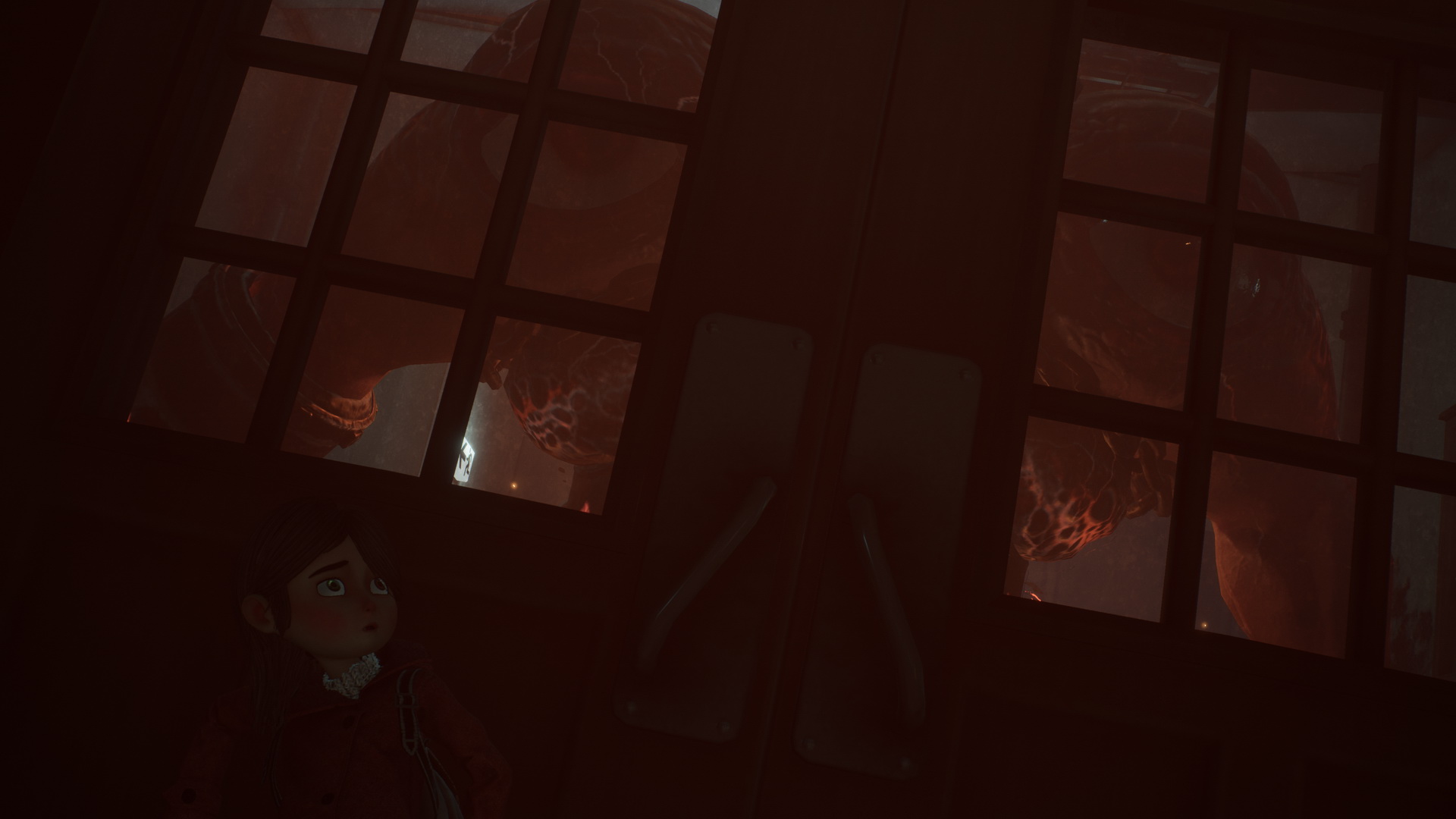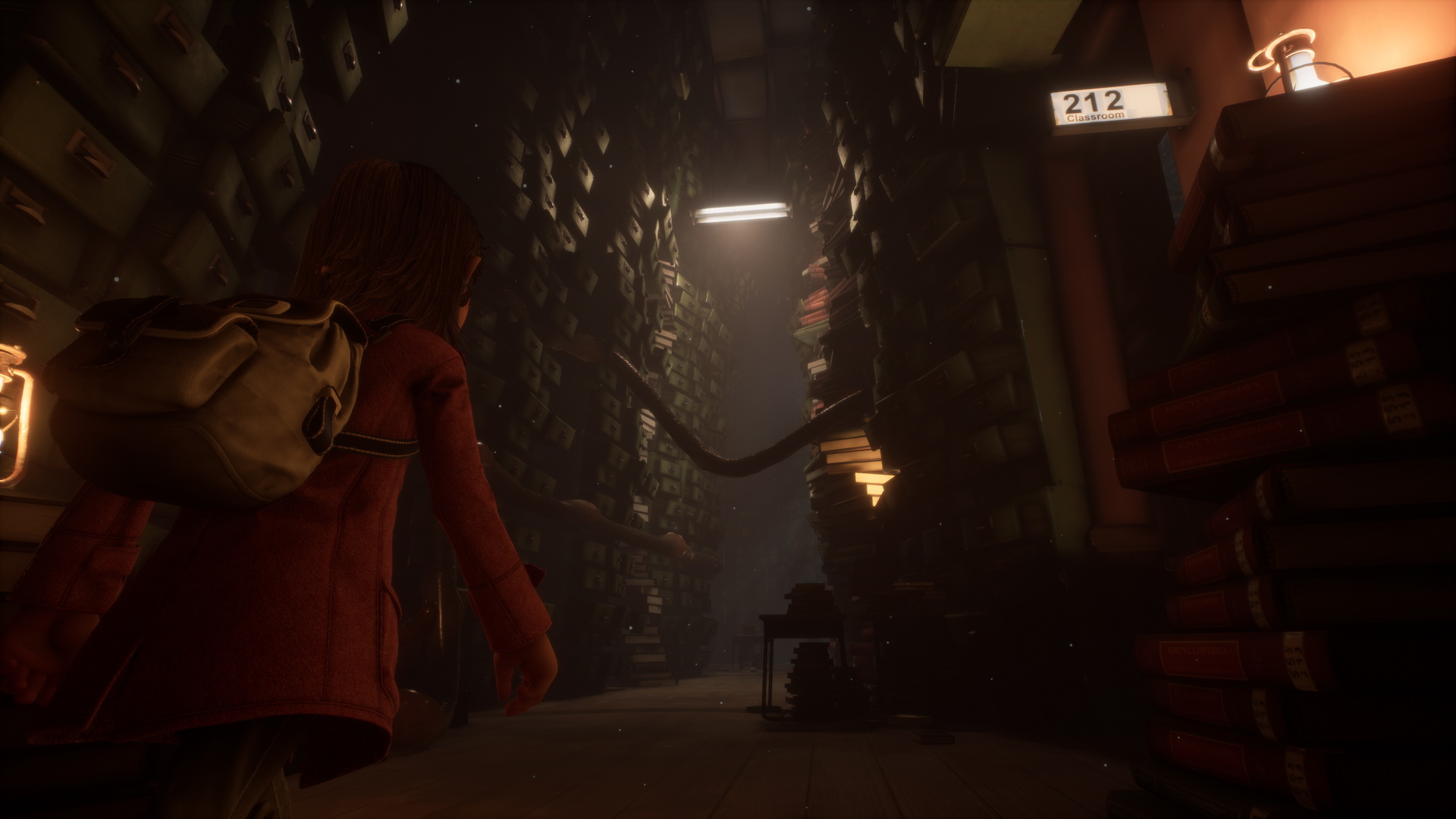Tom's Guide Verdict
As a stand-alone experience, Gylt is all right. As a Stadia exclusive, it doesn't do much to highlight the system's unique properties.
Pros
- +
Enjoyable gameplay variety
- +
Good graphics and sound
- +
Doesn't outstay its welcome
Cons
- -
Story feels vague and insubstantial
- -
Level structure gets repetitive
- -
Stadia connection can be unstable
Why you can trust Tom's Guide
Google Stadia is here, and our first impressions are mixed. Streaming games on any screen in your home without long download times sounds like a dream, but the reality is a lot more complicated. What could really sell the whole Stadia project, though, is a blockbuster exclusive title — a best-in-genre experience that simply could not exist on any other gaming platform.
Instead, we got Gylt ($30). This tween-friendly Stadia exclusive is sort of a stealth/puzzle/horror mashup from the devs at Tequila Works (Deadlight, Rime), and to damn it with faint praise, it's fine. Like other Tequila Works titles, it's an ambitious idea with a distinctive art style, where the gameplay and story put forth a few interesting ideas, and then never fully deliver.
As a stand-alone 6-hour experience, I enjoyed Gylt more than I expected to. After a rough first impression, the game picks up a lot, leaning on a few simple mechanics for some satisfying puzzles and exploration. But I'm not sure whether Gylt leans into the Stadia's strengths in any way. It would work just as well on any other platform — better, actually, since the game wouldn't have crashed due to botched server connections quite so often.
One nice thing about Stadia, though, is that its exclusive game doesn't have to sell a whole console; people can buy Gylt and play it on a screen they already own. As such, Gylt gets a mild recommendation for gamers who dig Neil Gaiman-style storytelling and Laika-style aesthetics, particularly those on the younger end of the spectrum. But as a way to sell prospective buyers on Stadia, Gylt is an odd first foot forward.
Gameplay
The first hour or so of Gylt is confusing, as it's not really clear what kind of game it wants to be. In the very beginning, you'll take control of 11-year-old Sally as she explores a dark, linear path with a flashlight in hand. Is Gylt a walking simulator? No, because a little while later, you'll have to evade monsters in the darkened corridors of a school. Then, is Gylt a stealth game? No, because you'll soon discover that you can fight back against the monsters with flashlight beams, à la Alan Wake or Blair Witch.
You get a map of the school, and you'll need to visit each room to find keys and other important items. Each room presents some sort of roadblock, either in the form of stationary monsters or some kind of environmental hazard, and you'll need to solve puzzles — by shining your flashlight, moving objects to create paths or rewiring circuit breakers — to advance. As the game progresses, you'll get a few more exploration and combat tools.
Once you understand all the tools in your arsenal, the game can get pretty repetitive.
Ultimately, Gylt is a horror/puzzle/stealth/exploration/action game — and the remarkable thing is that it doesn't feel overstuffed. In fact, I wish I'd known going in that the game would have some light combat elements, and that botching a stealth section would not be a death sentence.
Get instant access to breaking news, the hottest reviews, great deals and helpful tips.
Batteries restore your flashlight's combat abilities, while inhalers restore your health. Gylt is pretty generous with both, although you'll still need to be judicious with them, since you never know when you'll come across a place to resupply. You'll especially need both during the game's handful of boss encounters. (Two of the boss sections are fun; two of them are agonizing.)
While Gylt's gameplay variety works in its favor early on, it can't help but feel a little constricting as the game progresses. Once you understand all the tools in your arsenal, the game can get pretty repetitive. You know that you're going to explore every room in a building, fighting or evading a few foes along the way. Then, you're going to traverse a long corridor that's filled with enemies, which you'll need to evade since they're too numerous to fight. Then, you're going to solve a very elaborate puzzle or fight a boss to find a way out of the building, and repeat the whole process again.
Since Sally's skills don't change over the course of the game, the puzzles you'll solve toward the beginning of the game aren't that different from those you'll solve at the end. In fact, late in the game, you won't have access to a few of your tools at all. This heightens the tension, but severely limits your gameplay options, which feels like an anticlimactic way to end.
Gylt's gameplay isn't deep, but it's good enough to keep you moving through the story — which is also a mixed bag.
Story
When you first boot up Gylt (and thanks to Stadia, you can boot it up as soon as you buy it — there's no installation), you'll see a disclaimer that the game deals with the sensitive topic of childhood bullying, and that you should seek help from a professional if it's happened to you. It sets the mood for a dark, traumatic, deeply psychological story about children who seem so cruel, they manifest as literal monsters.
What you get instead is a fairly pedestrian story about a perfectly normal preteen, who occasionally looked the other way at callous behavior to fit in — as a perfectly normal preteen might do.
The problem with Gylt is that its story has grand pretensions and a solid metaphor — our indifference makes us monsters — but the execution is incredibly vague, and not nearly as damning of the protagonist as it thinks it is. Here's the setup:
Sally Kauffman's 7-year-old cousin Emily has been missing for more than a month. While out posting "Missing" flyers, Sally evades a gang of school bullies, and finds herself lost in a shadowy otherworld. Here, her town of Bethelwood is a dark, empty reflection of itself, populated only by monsters and a mysterious old man who seems to know the "rules" of the place, but can't help Sally directly. Sally may be able to find Emily here, but only if Emily wants to come home.
As the game progresses, we learn more about Emily's self-imposed exile through journals scattered around the school. Bullies made fun of Emily relentlessly, and Sally never stood up for her. That keeps the story moving forward, as Sally tries to persuade a reluctant Emily to come home, and Emily starts to understand the threat she faces by staying in the otherworld.
The problem with Gylt is that its story has grand pretensions and a solid metaphor — our indifference makes us monsters — but the execution is incredibly vague.
But if you take a closer look at the plot threads, things start to fall apart. Why was Emily bullied? Why was Sally her only lifeline? What about Sally's own bullies? (After the intro, they're never mentioned again.) Why was protecting Emily against bullies Sally's — and only Sally's — responsibility?
Without spoiling too much of the story, we do eventually learn why Sally didn't stand up for her cousin, but it's not some deep-seated darkness within the protagonist. It's everyday childishness. And in an 11-year-old, that's eminently forgivable — even if the story doesn't seem to think so. Sally's punishment is disproportionate to her crime, particularly if you don't hunt down every collectable doodad and have to suffer through the "bad" ending.
The trouble with Gylt is that it thinks it's making a very important point: that we often rail against bullies, even as we bully others ourselves. But the text doesn't back up the subtext. Gylt puts normal childhood behavior under extremely harsh scrutiny, but doesn't provide enough details to flesh out the characters and their motivations. I hunted down almost every optional journal, and I was still left scratching my head as to what Sally did that was so unforgivable — and what makes Emily such a perfect, blameless martyr.
Stadia exclusivity
Normally, I'd take a moment here to address the graphics, music and voice acting, but frankly, they're all fine. The art style goes for sort of a Coraline-ish "slightly askew schoolgirl in a very askew mirror world" aesthetic, and it works. The graphics would have been more memorable if they'd leaned into the cartoonish aesthetic more, but they're on the right track, at least. Likewise, the music is eerie and the voice acting is all on point.
Instead, I'd like to talk about my experience playing Gylt on Stadia. At present, Gylt is the only exclusive title available for Google's platform, and as such, it represents the unique aspects of the system, whether or not Tequila Works intended it to. As I've described, the game itself is fine, if a little unambitious and slight. It's hardly a powerhouse launch title, but I think there's a target audience out there for it — especially teenage and tweenage girls who want a game made with them in mind, but aren't quite ready for Life Is Strange yet.
But my experience of actually playing Gylt was, without mincing words, miserable. On a gaming rig with a steady 35 Mbps wireless signal, the game was still often fuzzy and jerky, particularly during chaotic action sequences. That in and of itself wasn't the worst part, though; the worst part was that the Stadia servers were absolutely not cooperating. I lost count of how many times I lost connection during this 6-hour game; I stopped keeping track after about 15. Sometimes I would lose connection, reconnect, take a few steps, and get booted right out again.
I know that the issue wasn't with my connection, as every other online application I had worked fine. I also know that when I played the game, Google may have been stress-testing Stadia servers in preparation for launch. But it made me realize an important point about Stadia: Sometimes the servers — or your connection — will be busted, and there will be nothing you can do to fix it. It's the tradeoff for never having to sit through an installation or patch, and my opinion, it's not a good exchange.
Bottom line
Gylt, the game, is all right, even though I don't think it'll elicit strong feelings from anyone a few months from now. If you ever wanted a kid-friendly Alan Wake, you finally have one. The narrative is a little confused and the gameplay is a little thin, but it means well, and there are a few legitimately scary moments and clever puzzles.
Gylt, the Stadia experience, on the other hand, demonstrates a lot of what can go wrong with the platform — at least when I played it. At best, it's an experience that could be faithfully re-created on any other system; at worst, it's almost unplayable for reasons beyond a user's control.
At the moment, you'll have to pick up a $129 Stadia Premiere Edition if you want to play this game, which I don't think is a worthwhile investment if your interest is only in Gylt. Next year, when Stadia's free tier becomes available, consider picking up the game then. Otherwise, if you're a Stadia early adopter, Gylt is worth a look, if only to see what kind of talent the platform has attracted. This first effort is not bad, but perhaps there's a more ambitious exclusive a few months out.

Marshall Honorof was a senior editor for Tom's Guide, overseeing the site's coverage of gaming hardware and software. He comes from a science writing background, having studied paleomammalogy, biological anthropology, and the history of science and technology. After hours, you can find him practicing taekwondo or doing deep dives on classic sci-fi.





